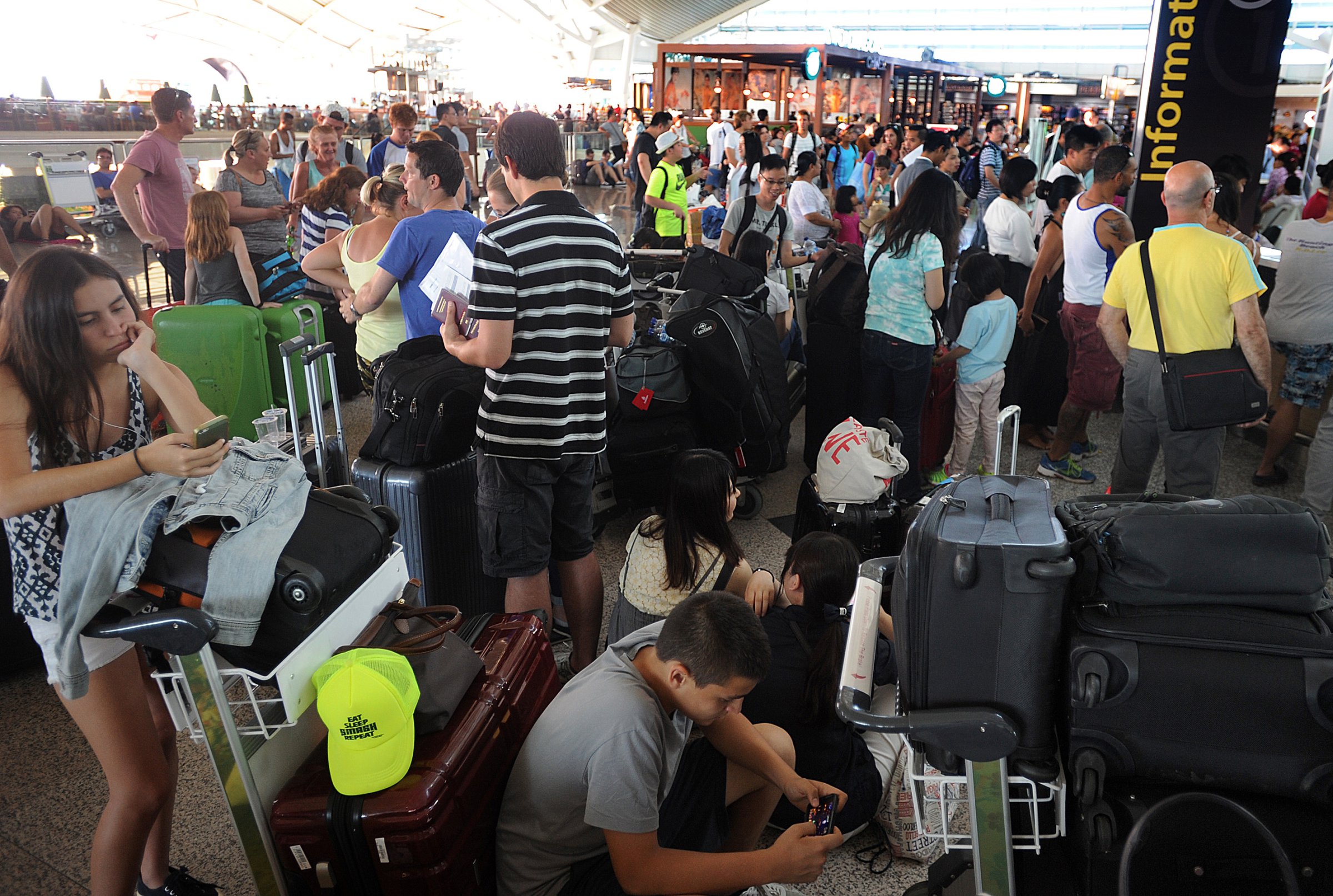
Bali’s main international airport in Denpasar reopened late Sunday afternoon, allowing airlines to begin the mammoth task of clearing a huge backlog of passengers that had been stranded in recent days due to a volcanic-ash cloud that had grounded hundreds of flights.
Mount Raung on East Java began erupting on July 2, sending a massive ash cloud toward the popular resort island of Bali. Flights have been disrupted since Wednesday, and five airports in the region were forced to close, including Denpasar’s Ngurah Rai international airport, which shut on Friday and again on Sunday.
Officials said the ash cloud was drifting away from Bali on Monday, giving airlines a chance to clear a backlog of almost 900 flights — but that would take up to three days, reports Agence France-Presse.
“We are doing this as quickly as possible as the ash could come back anytime,” airport official Yulfiadi told AFP.
On Monday, Indonesian carrier Garuda Airlines told TIME that domestic and international flights to and from the island resort of Bali were scheduled as usual, although there would be delays.
Jetstar announced Monday that it would resume some services between Bali and Australia in the afternoon, and Malaysia’s AirAsia carrier said Sunday that it was resuming several domestic and international flights.
Virgin Australia said its planes, however, would remain grounded throughout Monday following advice from the Volcanic Ash Advisory Center.
Volcanic ash can damage a plane’s engines, and the eruption at Mount Raung has caused travel chaos and left thousands of people stranded in Indonesia and around the region for days. The disruption comes at a particularly busy time in Indonesia as millions of Muslims travel to celebrate ‘Id this week. School holidays during the southern hemisphere winter are also a hugely popular time for Australians to visit Bali.
For residents living in the vicinity of Mount Raung, evacuations have not been deemed necessary, although authorities are urging people to wear face masks, the Associated Press reports. People are also warned not to approach a 2-mile high-danger zone around the volcano.
More Must-Reads From TIME
- The 100 Most Influential People of 2024
- Coco Gauff Is Playing for Herself Now
- Scenes From Pro-Palestinian Encampments Across U.S. Universities
- 6 Compliments That Land Every Time
- If You're Dating Right Now , You're Brave: Column
- The AI That Could Heal a Divided Internet
- Fallout Is a Brilliant Model for the Future of Video Game Adaptations
- Want Weekly Recs on What to Watch, Read, and More? Sign Up for Worth Your Time
Write to Helen Regan at helen.regan@timeasia.com